International Colloquium on Integrational Linguistics
by Feifei Zhou and Kimberly Tao (Photos: Courtesy of Franky Lau)
Dates: January 17-19, 2013
Venue: Seminar Room, School of English, Room CRT-7.45, 7/F, Run Run Shaw Tower, Centennial Campus, The University of Hong Kong
We had a three-day integrationist colloquium in January with professors from Europe and the States. Integrationism was founded by Professor Roy Harris who has worked as head of School of English around 1990s. A detailed introduction of integrationism could be accessed by the following link: http://www.royharrisonline.com/integrationism.html. In short, Integrationism is a radical approach to study human communication, semiological systems and interpretation activities based on a non-codified understanding of signs. It strongly differs from main-stream linguistics which seeks a systematic explanation of language and communication in general. What is emphasized in integraitonism is constant creative efforts of human language-makers in shifting contexts. It has been a tradition for integrationists to hold small-scale international colloquiums every one and half years. The last two were in Hong Kong (May 2010) and Birmingham (July 2011). This year’s colloquium focuses on Language and Identity as a topic for Integrational linguistics. A series of topics such as language loss, language endangerment, the politics of linguistic description, linguistics and colonialism, language rights were covered. In this article, we will give a short summary of each professor’s presentation.
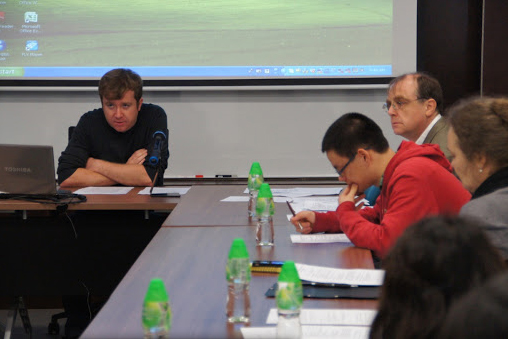
Jon Orman, University of Cape Town, An integrational perspective on linguistic diversity and language loss
Dr. Orman’s presentation criticized some prevalent notions in the theoretical discourse on linguistic diversity and language loss. A misconception of the relationship between language, knowledge and culture informed by a fixed-code view of language and communication, namely, ‘knowledge is encoded in language’, ‘a language is a repository of a unique culture’, etc. was challenged. He proposed a new way of looking at issues in language endangerment from an integrationist perspective, which is, language is integrated in meaning-making activities and meaning is generated by human capacity for sign-making.
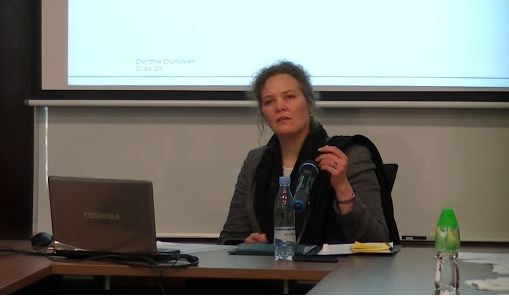
Dorthe Duncker, University of Copenhagen, The view from where? Perspectives on language and languaging
Professor Duncker, in her presentation, compared two perspectives in language research, namely, first-person and third-person perspective (the view from everywhere). Integrationism with its emphasis on first-order language reality for individual language users was singled out as offering a first-person perspective into workings of language and communication. She further developed a detailed analysis of linguistic conventionalizations from a first-person perspective based on some case studies. She concluded that ‘conventionalization is a process inseparable from the continuous creation of linguistic signs to meet the various demands of communication’.
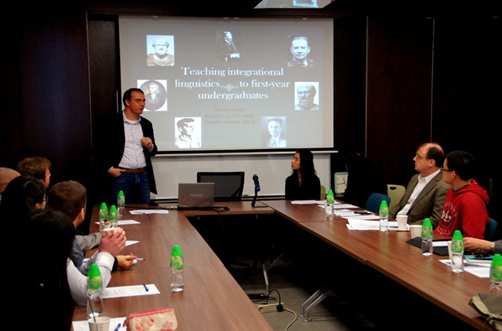
Adrian Pablé with Aubrey Lau Sing Hang, Carmen Jessica Wong, HKU Teaching integrational linguistics to first-year undergraduates
Dr. Pablé shared his teaching experience in a year one course about Integrational Linguistics. In his presentation, he talked about the topics, organization, structure and assessment of his course. He also invited two students of his course, Aubrey Lau Sing Hang and Carmen Jessica Wong, to tell us how they viewed Integrational Linguistics from a student’s perspective and why they were interested in exploring more about it. This talk stimulated the participants to think about possible ways of teaching Integrational Lingustics.
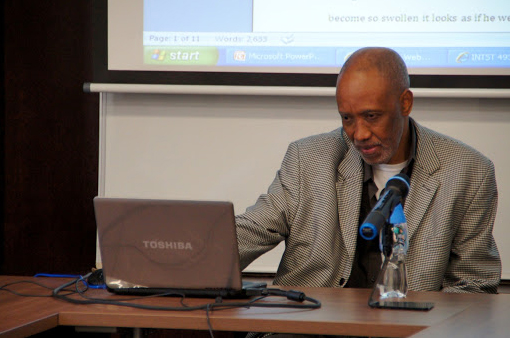
Sinfree Makoni, Pennsylvania State University, How to apply Integrationism to medical contexts
Professor Makoni conducted a workshop for the colloquium by introducing the idea of applying Integrationism to medical contexts. Based on his field work on communication in medical contexts between the doctor and the patient in Africa, he further questioned, how can Integrationism repair the observed inadequacies in medical communication? During the heated discussion, further questions arose: Is labeling a necessary step in medical communication? What are the consequences of labeling? Can Integrationism teach people to become better communicators? Moreover, there were questions concerning the nature of theories and application of theories.
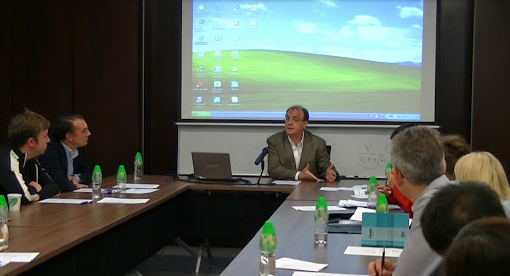
Chris Hutton, HKU Owning language
Professor Hutton talked about the notion of owing language through exploring different intellectual frameworks. In his talk, he made a link between law and Integrationism on the ownership of language. In law, there are different things that can be owned, for instance, things that have been said or written could be owned through copyright while names, brand names and logos could be owned as trademarks. On the other hand, from an Integrationist’s perspective, Harris’s idea was that “the language or languages a community uses must be its own; and communities, like individuals, have the ability to make a language their own. For communities, like individuals, are not just language users; they are language makers” (The Worst English in the World?, 1990, p. 45-7). This presentation inspired participants to ponder over the idea of owning language from both law and Integrational perspective.
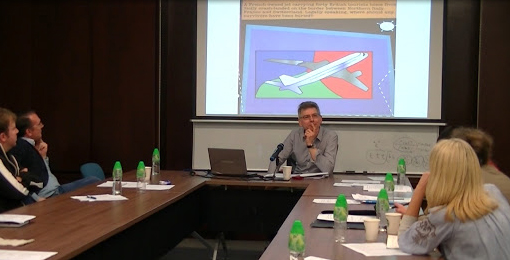
Peter Jones, Sheffield Hallam University, ‘Coordination’ in Herb Clark and ‘integration’ in Roy Harris: common grounds or clashing visions?
Dr. Jones offered a comparison between Clark’s psycholinguistic theory and Harris’s integrationist thought based on a critical analysis of two central concepts in their works. Clark’s concept of ‘coordination’ emphasizes participants’ joint action in creating common grounds to seek understanding. This seemed to challenge a received view on communication in mainstream linguistics, that is, communication is achieved on the basis of a shared language system. Yet upon closer analysis, Jones led us to see that it is a fixed-code view couched in seemingly Integrational terms.
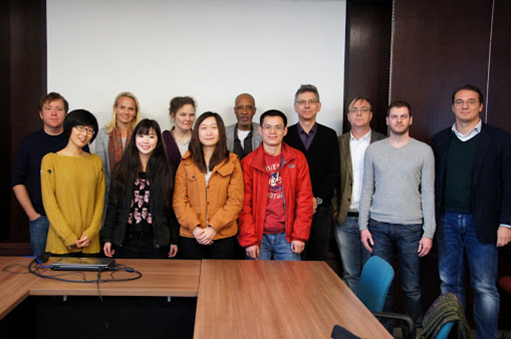
A group of postgraduates from our school also presented papers and participated in the discussions.
We also took them to several traditional Chinese restaurants and showed them around some unique scenic spots in Hong Kong. We are looking forward to our next Integrational gathering!

Our apologies, you must be logged in to post a comment.